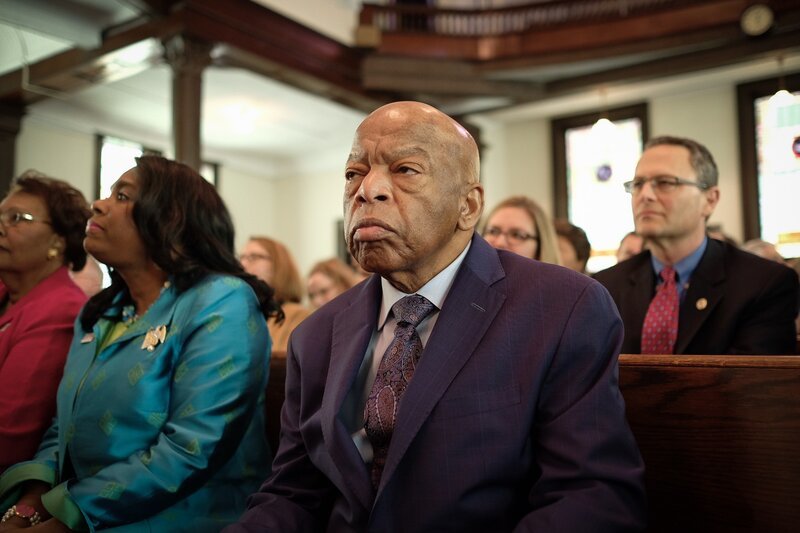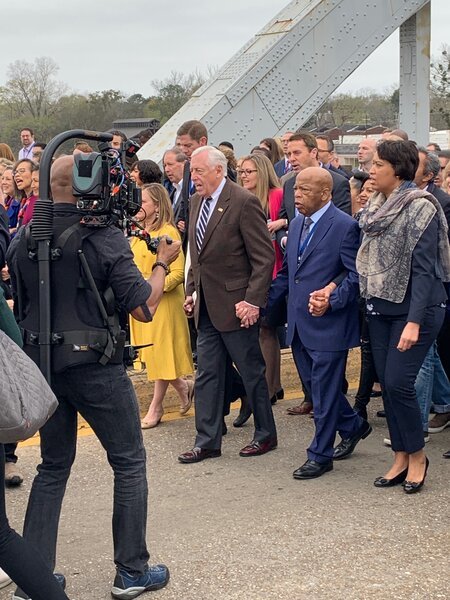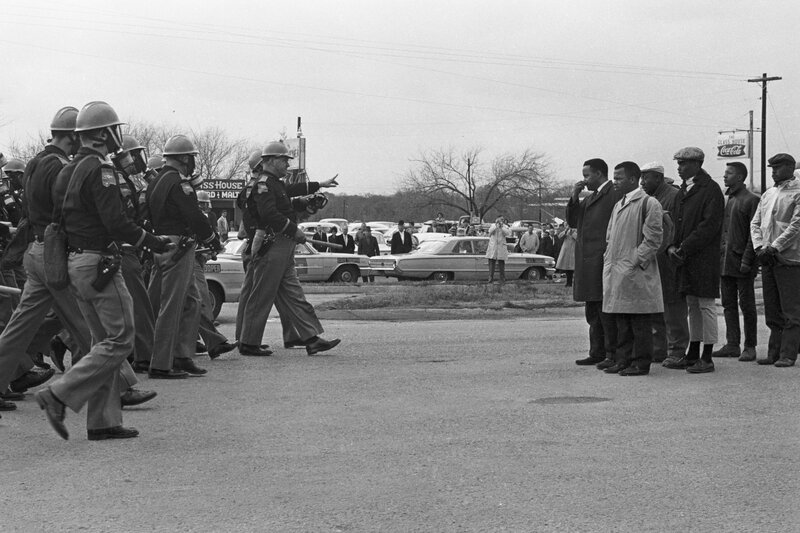Getting Into Good Trouble
Review of John Lewis: Good Trouble at SIFF
Written by Teen Writer Carolyn Davis and edited by Teen Editor Lucia McLaren

The documentary Good Trouble, hosted by SIFF, is a skillfully told biography of the iconic civil and human rights activist John Lewis. With a heart of gold and the courage to stand up for his nation, Lewis urges us not to stay quiet, but to get in “good trouble, necessary trouble,” which he says will “redeem the soul of America.” The cinematography in this documentary is unique in that it shows both footage from the current day and the 1960s. Lewis himself said he was seeing footage he had never seen before. The film was an excellent representation of the Civil Rights era, as well as the heroes of that time. It was focused on Lewis’ life, but also incorporated the lives of others who impacted him and the change we see today.
The way the film highlights non-violence is very impactful to me because it is about getting into “good trouble.” The fact that peaceful marches and sit-ins get the most screen-time shows how the movement for the lives and rights of Black people has always been peaceful—whether it was the March on Washington in 1963 or the Black Lives Matter marches today.

A lot of what made Lewis so respectable was that he was not only making a concrete difference in the world but he also fully committed to doing so “in an orderly, peaceful, nonviolent, fashion.” Doing things fearlessly and nonviolently is one of the hardest things to do, especially when you are being “beaten, and left lying in a pool of blood.” There was no empathy for Black people at that time, and it was up to Lewis to decide to continue protesting in a nonviolent manner.
What you’ll find timeless and most relevant to today (especially in an election year) is how Lewis consistently talks about democracy being our most crucial tool in having a just government, which is why he is a persistent advocate for voting rights. “The vote is still the most powerful, nonviolent tool we have in our democratic society,” he says. The bias in voting was one of the largest influences on his decision to be a freedom fighter and to participate in the Marches on Washington and Selma. Those movements were some of the most agonizing times in the Civil Rights movement, and yet they paved a path for laws to be made towards racial equality.

Even when laws were in place to establish that everyone would be treated equally, many Black people were “beaten by angry crowds of Whites while southern sheriffs look the other way.” Lewis said, “if you don’t do everything you can to change things, they will remain the same,” and if the situation remained the same, people would be “victims of violence at the hands of the white man” (Malcolm X), far more than they are now. Standing by and doing nothing is agreeing with White people from that period and the acts of injustice committed towards Black people.
I also enjoyed how this film highlights showing love for everyone. Lewis said “love your country like you love yourself,” which shows how invested he was in being kind to all, even in the face of discrimination. As a Black girl living in the presence of racism and microaggressions, I often find it hard to find love for people who grew up so biased, who do not understand the impact of their attitudes and choices. His words help me have more patience and positivity.

It was deeply satisfying for him to see such effectual changes in society during his lifetime. When he watched President Obama get elected, he said he “was crying for Dr. King, President Kennedy, Robert Kennedy, parents and grandparents, and others, hundreds and thousands of people who couldn’t live to see this.” When Lewis also asked the new President for a signature, Obama wrote, “It’s because of you, John, that I can be President."
John Lewis: Good Trouble is a call to action. Eric Holder, former Attorney General said in correlation to our current times, “This is not a time for despair, this is a time for action.” I agree, because we are at a turning point, where we could either keep our momentum and establish true equity for all, or go right back to where we started. Especially after losing some of our political leaders right before an election, we cannot let Lewis’ nightmares become a reality, which he describes as “one day we may wake up and our Democracy is gone.” Lewis said “As long as I have breath in my body, I will do what I can,” and he has done an amazing job. But now, we need to carry on his legacy and fight for what is right.
Lead Photo Credit: Magnolia Pictures
The TeenTix Newsroom is a group of teen writers led by the Teen Editorial Staff. For each review, Newsroom writers work individually with a teen editor to polish their writing for publication. The Teen Editorial Staff is made up of 6 teens who curate the review portion of the TeenTix blog. More information about the Teen Editorial Staff can be found HERE.
The TeenTix Press Corps promotes critical thinking, communication, and information literacy through criticism and journalism practice for teens. For more information about the Press Corps program see HERE.

